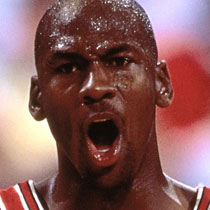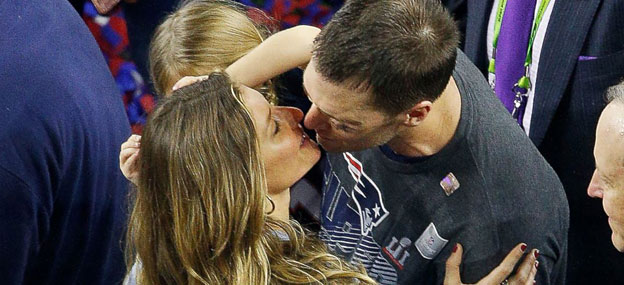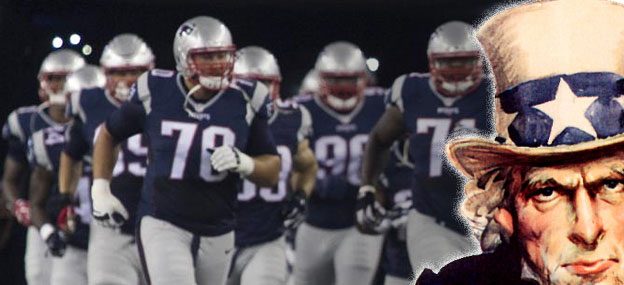The Jock Tax: An Extra Tax on Prop Athletes: When the Atlanta Falcons and the New England Patriots qualified for this year’s Super Bowl, players on both teams an obvious reason to celebrate their collective achievements that got them to the championship game in Houston.
They also got lucky because Texas is one of only 4 states NOT to charge visiting pro athletes an extra tax called the “jock tax,” so they’ll all be taking home thousands of dollars more than if the game had been played elsewhere. So, what is this, “jock tax,” and when did it originate?
The History of the Jock Tax & “Michael Jordan’s Revenge”

Professional athletes’ taxes, or “jock taxes”, have become a common way for states to fund their governments off the backs of the athletes who play there. When athletes play in a state that collects income tax, any money made from that game is taxed as income earned in that state, which can lead to a bill of thousands of dollars for one day spent in that state.
So, when did the jock tax start? It’s been around in some form since the 60’s, but heated up after the 1991 NBA finals when California sent Michael Jordan and the World Championship Chicago Bulls a tax bill for playing in their state.
Illinois soon retaliated by taxing athletes visiting from any states that charge them a jock tax in a law known as, “Michael Jordan’s Revenge.” Essentially this now-famous Illinois tax law says, “if you tax us, we’ll tax you right back.”
*Related: TurboTax: How to file state taxes for free
As if the state jock taxes aren’t bad enough, cities like Philadelphia jumped in to charge athletes a 3.92% city tax in addition to the taxes charged by the state.
Jordan had the last laugh on this issue, as he made over $100 million last year just from his Nike shoe deal, and California athletes continue to be taxes in Illinois!
The Jock Tax for Pro Athletes: California Is the Worst State!
A tax bill of $7,000 per game isn’t much to someone like Panthers’ quarterback Cam Newton, who collects $20 million in salary, but to a player making the league minimum, (currently $450k per year) such an arrangement can be very costly – and very time-consuming.
Professional athletes pay taxes in every state they play in during the season, which can make things very confusing when players realize that they’ve been placed in the highest tax bracket and have to figure out professional athlete taxes for what could be as small as a single check to a state.
In the worst cases, an athlete might have to give back up to 50% of their salary to Uncle Sam. In an unfriendly tax state like California, (which has a 13.3% state income tax) that meant that last year San Diego QB Phillip Rivers was hit with a tax bill of over $10.5 million on his $21 million salary. Ouch… Looks like NFL players might hate taxes even more than the rest of us!
- Here’s a list of the NFL players paying the most in taxes, and a breakdown of NFL athletes’ taxes by state.
Tennessee Recently Abolished the Unpopular Jock Tax
Tennessee used to charge a jock tax of $2,500 per game for up to three appearances in the state. However, it doesn’t cost players money to play in Memphis anymore, as the Tennessee legislature officially ended the Tennessee jock tax in 2014 and declared the 2016-17 season as the first season in which NBA players will not be subject to a tax to play in Tennessee.
In doing so, the legislature sacrificed millions in tax dollars that were going to the state’s two arenas in Nashville and Memphis, but created a competitive advantage for both the NHL’s Nashville Predators, who had also been subject to the tax, and the Grizzlies in the process.
No Jock Tax in: Florida, Washington DC, Washington State, Tennessee, Texas, & Sometimes Illinois
Because of their divisional setup, the Grizzlies share the Southwest Division with the Dallas Mavericks, the San Antonio Spurs and the Houston Rockets, which requires them to face each team four times a year and play two games with each team in tax-free Texas.
Combined with annual road games against the Orlando Magic, Miami Heat and Washington Wizards, none of whom charge jock taxes, and the Chicago Bulls, who play in Illinois, which waives its jock tax for teams from states that don’t charge one to its teams, Grizzlies players only pay state tax on 31 of their 82 game checks per season, tied for the lowest in the NBA with the Texas teams.
States Without the Jock Tax Have a Recruiting Advantage
Perhaps not coincidentally, the Southwest Division has consistently been one of the strongest divisions in the NBA during the 2010s, sending at least four of its five teams to the playoffs in 2011, 2014, 2015 and 2016.
Another fact that might not be a coincidence is that the one Southwest team that does play in a state that collects NBA jock taxes, the New Orleans Pelicans, has finished in last place every year from 2012 to 2016.
The competitive advantage didn’t factor into the 2017 NFL playoffs, although both the Patriots and the Falcons players do benefit from one guaranteed game in Florida per year against the Miami Dolphins and the Tampa Bay Buccaneers, respectively. But regardless of their feelings on the result of the Super Bowl, every person on the sidelines in Houston (including the coaches) had at least $7,000 reasons to smile about the fact that 2017 was the year they got to the big game.

The Jock Tax: One Reason It’s Good NOT to Be a Pro Athlete
Although there are a lot of reasons to envy being a professional athlete, taxes are not one of them. The jock tax is a contributing reason why pro athletes face giving back up to 50% of their salary and filing up to 10 tax returns each year!
Add to all those taxes the additional expense of paying an accountant to prepare their complicated taxes, and it really adds up. Maybe Tom Brady has a supermodel wife, millions of fans, and a rock-star lifestyle, but you pay less in taxes! Another silver lining is that we can offer you exclusive coupons for TurboTax (20% discount) and H&R Block (50% discount). Hey, it’s not Gisele’s love and affection, but it’s something!
Super Bowl Earnings: Usually Subject to the Jock Tax
Usually, NFL players pay taxes in every state, but Super Bowl LI was held in Houston, the largest city in tax-free Texas. The Lone Star State is one of just four states that doesn’t collect a so-called “jock tax”, meaning that neither the Falcons nor the Patriots would be subjected to state taxes on their earnings for either the week of the Super Bowl nor the bonuses that come with playing in the big game.
The winning team earned roughly $130,000 per player in the form of $107,000 in cash and about $20-25k more in the form of their Super Bowl ring, both of which would have been taxed in all states except Texas, Florida, Tennessee, Washington state, and Washington, D.C.
By contrast, members of 2016 championship team, the Denver Broncos, had to fork over roughly $17,000 each in tax dollars to California following their win over the Carolina Panthers. The Panthers’ players took a double loss: not only did they have to watch the Broncos celebrate, but they had to fork over about $7,000 each to the Golden State.
Ok, so everything seems to go Tom Brady’s way. You can go back to hating him now.


